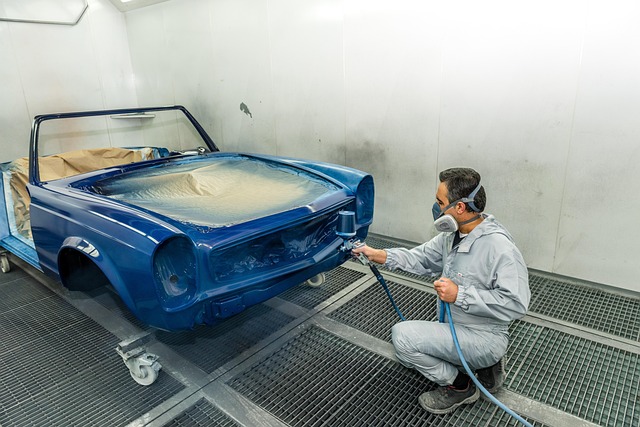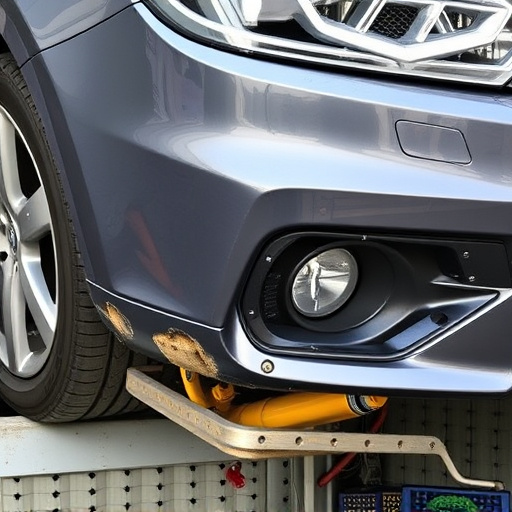The supplement process is a crucial aspect of vehicle maintenance, involving the strategic addition of specialized products like engine oils, tire services, and brake fluids to ensure optimal car performance and longevity. By proactively addressing various car systems, drivers can anticipate potential issues, make informed decisions about their vehicle's health, and enhance road safety. This process also enables automotive body shops to uncover hidden problems beyond initial estimates, fostering transparency and trust with customers. Through rigorous assessments, meticulous inspections, and detailed repair plans, collision centers deliver precise estimates and high-quality repairs, leaving customers satisfied with the final outcome.
In the realm of project management, understanding the intricate dance between initial estimates and actual outcomes is vital. This article sheds light on the often-misunderstood supplement process, a critical aspect that can make or break project success. We explore how supplements, defined as adjustments to enhance or rectify initial plans, serve a pivotal purpose in navigating unforeseen challenges. By delving into key steps, factors like scope creep and resource constraints, and implementing effective strategies, project managers can bridge the gap between estimates and reality, ensuring smoother operations and improved accuracy.
- Understanding the Supplement Process
- – Definition and purpose of supplements
- – Key steps involved in the supplement process
Understanding the Supplement Process

The supplement process is a crucial aspect of ensuring your vehicle’s optimal performance and longevity. It involves the periodic addition of specialized products to enhance or restore various components within your car, much like how regular auto maintenance keeps a machine in top shape. These supplements can range from engine oils and filters to tire services and brake fluids, each tailored to specific systems. Understanding this process is essential for vehicle owners as it bridges the gap between routine auto repair services and proactive care.
By familiarizing themselves with the supplement regimen, drivers can anticipate potential issues and make informed decisions regarding their car’s health. For instance, regular tire service checks, such as pressure monitoring and tread analysis, can prevent unexpected breakdowns or unsafe driving conditions. Similarly, ensuring the right brake fluid levels through auto repair services can significantly impact stopping power and overall safety during drives.
– Definition and purpose of supplements

Supplements, an integral part of the modern automotive body shop experience, serve a crucial purpose beyond mere aesthetic enhancement. In the context of car repair services, they are additional components or repairs that go above and beyond the initial estimate, addressing unforeseen issues or requiring more extensive work than initially anticipated. This could involve anything from fender repair to intricate mechanical fixes, ensuring that every aspect of the vehicle is in optimal condition.
When a customer brings their vehicle into a professional shop for services, an initial estimate is provided, outlining the expected costs based on visual inspections and preliminary assessments. However, during the actual supplement process, further analysis and expertise may reveal hidden problems or more complex scenarios, leading to adjustments in the estimated cost. These supplements are essential for maintaining transparency between the shop and the customer while ensuring that only necessary repairs are conducted, ultimately enhancing the overall car repair experience.
– Key steps involved in the supplement process

The supplement process begins with a thorough assessment of the initial estimate. This involves cross-referencing the quoted costs against the actual damage on the vehicle, ensuring precision and transparency throughout. The key steps include a detailed inspection of the car’s exterior and interior, checking for any hidden damage or additional repairs required that might not have been initially considered.
Once the assessment is complete, the repair team creates a comprehensive plan outlining the necessary supplement process steps. This involves everything from auto glass repair to intricate car body repair, ensuring every aspect of the vehicle’s restoration is accounted for. By taking this meticulous approach, collisions centers can provide accurate estimates and deliver high-quality repairs, leaving customers satisfied with the outcome.
In understanding the complex dynamics between the supplement process and initial estimates, it’s clear that variations are inevitable. This article has elucidated each step of the supplement process, highlighting its definition, purpose, and key components. By demystifying these aspects, organizations can better anticipate and manage discrepancies, ensuring a more precise and effective supplementing strategy. The supplement process is an iterative learning curve, where continuous improvement and adaptation are key to achieving desired outcomes.














